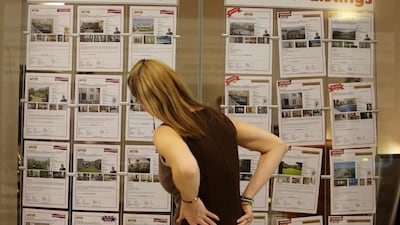I enjoyed reading the article Hammour than meets the eye: NYU Abu Dhabi study reveals secret (December 15). However, I would like to clarify a few things.
First, it is considered as three different species in all the management measures taken by federal and local government levels.
Second, traders are well aware, but to fetch better price for lower-priced species (they look pretty much the same), they leverage the situation for commercial benefits.
Third, the population is not dwindling because they catch them as one, but it’s simply an over-exploitation of high commercial species because of its high demand.
Mohammed Tabish, Abu Dhabi
Don’t borrow unnecessarily
I refer to the article UAE debt stories: oil and gas worker's suicidal thoughts over Dh128,000 owed (December 14). There is a saying – "robbing Peter to pay Paul".
Pranav Ahmed made bad decisions after bad decisions. It’s like saying: “I kept ordering more food and got fat. What a terrible situation.”
D Rose, Abu Dhabi
I don’t feel sad for him, because he deliberately chose to live a life that he couldn’t afford. In the process he dug his own grave.
Sarab Chawla, Dubai
Dubai rents will come down
In response to the letter Make rents more reasonable (December 16), rents will slowly come down. When landlords get desperate enough, they reduce their asking price or the property will remain empty. If someone invests in a property it's up to them how they want the investment to work.
Name withheld by request
Even though so many new homes are lying vacant, rents are not coming down (About 6,000 new homes sitting empty in Dubai amid poor property market conditions, December 15). This isn’t helpful either for the property owners or for renters.
In fact, individuals often have an option to live in places where accommodation is cheaper. But landlords do not have any choice but to leave their property vacant. This scenario will create a bubble in the property market.
Alia Rizvi, Dubai
The job of a teacher is tough
Regarding the report Abu Dhabi teachers hit back at report, cite workload for high absentee rate (December 15), I am an expatriate teacher, working here for four years and it is hard work.
What is harder is the idea that others who are not in teaching don’t get it. I have owned a business, worked in retail and in restaurants. But nothing is harder than teaching. I work fewer hours in this country, or rather I work fewer hours with the children, but I work just as many hours as I would somewhere else.
Next, consider that my students don’t speak my language. I have 25 of them, aged between 3 and a half and 4 and a half years.
Much of my time, when not with them, is taken up with finding visuals and putting together “centres” for them to explore and learn. I have to assess their learning. We are not given adequate time for planning.
I am expected to show extensive growth with expectations beyond what a 4-year-old in a native English class would show in a day that is typically two to three hours shorter than in my home country, and leave time in the day for the most important learning, Arabic and Islam.
I work more days here than anywhere I have been. Still, if you added up the hours and pay me a minimal wage based on each student as you would a babysitter, I would earn at least three times more than what I am making. And I am trained and expected to educate the children, not just babysit them.
Please come and spend a week with me and see what you say afterwards.
Cindy Talbot, Abu Dhabi
Regarding the report, Abu Dhabi school inspections reveal challenges of corporal punishment and absent teachers (December 14), I believe that Adec has every intention of following and practising the values and virtues of good education systems, but sometimes things are not in their control.
I have seen some remarkable progress in the education system over the past few years that would be the envy of any country in the world. It would be great if expatriates recognise those achievements as well.
Name withheld by request

